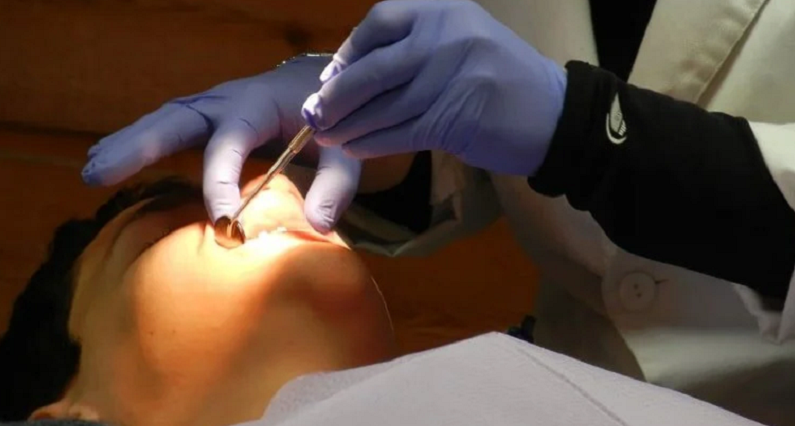
Cognitive decline is a concern that looms large as we age, affecting our memory, problem-solving skills, and even our ability to carry out everyday activities. Traditionally, when we think of ways to maintain cognitive health, activities like mental exercises, physical fitness, and a balanced diet often come to mind. But what if there were other, less obvious factors that could significantly impact your cognitive function? One such surprising factor is oral health. While oral health might initially seem unrelated to cognitive function, a growing body of research suggests that the health of your mouth may indeed have far-reaching implications for your brain.
Contents
The Importance of Oral Health
When it comes to maintaining a healthy lifestyle, oral health is often overshadowed by more headline-grabbing topics like cardiovascular fitness, weight management, and mental well-being. However, neglecting your oral health can have serious repercussions, not just for your teeth and gums, but also for your overall health—including your cognitive function.
Definition and Importance of Oral Health
Oral health encompasses much more than a sparkling smile. According to the World Health Organization, oral health is a state of being free from mouth and facial pain, oral and throat cancer, oral infections, periodontal (gum) disease, tooth decay, tooth loss, and other diseases and disorders that limit an individual’s capacity in biting, chewing, smiling, speaking, and psychosocial well-being.
The importance of oral health extends beyond the mouth; it has been linked to systemic conditions such as cardiovascular disease, diabetes, and even respiratory infections. The mouth serves as a sort of “gateway” to the rest of the body, offering clues about your overall health and even serving as an entry point for bacterial infections to spread to other parts of the body.
Common Oral Health Problems
Now that we’ve outlined what oral health means and its significance, let’s delve into common oral health issues that many people face at some point in their lives.
Tooth Decay
Often caused by poor dental hygiene, tooth decay is the destruction of tooth structure. This can lead to cavities, root canals, and even tooth loss if not adequately addressed.
Gum Disease
Also known as periodontal disease, this is an inflammation of the gums that can progress to affect the bone that surrounds and supports your teeth. Symptoms include red and swollen gums, persistent bad breath, and loose or sensitive teeth.
Oral Infections
Conditions like thrush, an oral yeast infection, can also compromise your oral health. Oral infections are often a sign of other systemic problems, including diabetes and autoimmune disorders [1].
The above are just a few examples, but they serve as a stark reminder of the various ways our oral health can deteriorate if we neglect proper care.
The Mouth as a “Window” to Overall Health
The mouth can act as a “window” into the health of the body. Signs and symptoms of various systemic diseases, such as Crohn’s disease, diabetes, and heart disease, often first manifest in the mouth. Furthermore, poor oral health can exacerbate other health conditions. For example, inflammation in the mouth can trigger inflammation in other parts of the body, including the brain—which brings us to the primary focus of this post, the link between oral health and cognitive function.

Overview of Studies Linking Oral Health to Cognitive Function
Having understood the integral role oral health plays in overall well-being, it’s time to dig deeper into the scientific literature that explicitly examines the relationship between oral health and cognitive function. This area of research has been growing over the years, and while it’s still in a stage of continuous discovery, some significant findings provide insights into this intriguing connection.
Early Observational Studies
One of the pioneering approaches to study this relationship was through observational studies. Early research often observed elderly populations, noticing that those with poor oral health frequently faced cognitive decline at a higher rate than those with better dental hygiene. However, these early studies were mostly correlational, and although they hinted at a link between oral health and cognitive function, they couldn’t establish a direct cause-and-effect relationship.
Recent Longitudinal Studies
The body of research has evolved to include more robust, longitudinal studies that track changes over time in both oral health and cognitive function. These studies provide stronger evidence for a direct link between the two.
For instance, a study published in the Journal of Neurology, Neurosurgery & Psychiatry followed participants over an extended period and found that individuals with severe gum disease were nearly twice as likely to suffer from cognitive decline as those without. These findings provide compelling evidence that the state of one’s oral health can predict certain aspects of cognitive health.
Meta-Analyses
Meta-analyses that pool data from multiple studies have also begun to solidify the evidence surrounding this link. These analyses provide a more comprehensive picture by combining the results of various individual studies. A meta-analysis published in the Journal of Clinical Periodontology concluded that there’s a significant association between oral health and cognitive decline, further cementing the relationship between these two aspects of health [2].
Limitations of Existing Research
While the existing body of research is promising, it is also important to acknowledge its limitations. Most of the studies have focused on older populations, so the applicability of these findings to younger people is still uncertain. Additionally, many studies rely on self-reported data, which can introduce bias and inaccuracies.
Future research is needed to explore the underlying biological mechanisms and to understand how the severity of oral health problems may proportionally affect cognitive decline. Randomized controlled trials, the gold standard in medical research, are also noticeably absent in this field and are needed for more conclusive evidence.
Biological Mechanisms Behind the Link Between Oral Health and Cognitive Function
As intriguing as the findings from various studies are, they naturally beg the question: “Why?” Why would oral health have any bearing on cognitive function? Understanding the biological mechanisms behind this link can offer us not only explanatory power but also actionable insights for preventative care.
Inflammation Theory
Inflammation is a common enemy when it comes to various health issues, and both oral health and cognitive function are no exceptions. The theory surrounding inflammation offers one of the most robust explanations for the connection between oral and cognitive health.
How Inflammation in the Mouth Affects the Brain
Poor oral health, especially conditions like gum disease, can lead to chronic inflammation. This inflammation doesn’t stay localized to the mouth but can enter the bloodstream, causing systemic inflammation, which affects various organs, including the brain. Elevated levels of inflammatory markers like C-reactive protein have been found in individuals with poor oral health.
Inflammation as a Mediator for Cognitive Decline
Research has consistently shown that systemic inflammation is associated with cognitive decline. Inflammatory markers can compromise the blood-brain barrier, leading to a form of neuroinflammation that can accelerate brain aging and contribute to cognitive decline. In summary, it is plausible that inflammation that starts in the mouth can ultimately impact the brain [3].
Microbial Theory
Another intriguing angle is the role of the microbial environment in the mouth, also known as the oral microbiome.
The Oral Microbiome
Your mouth is home to a complex community of microorganisms. While many of these microbes are harmless or even beneficial, poor oral hygiene can allow harmful bacteria to proliferate.
How Oral Bacteria Can Impact the Brain
Some of these harmful bacteria can produce toxins that enter the bloodstream and have the potential to cause damage to the brain. For example, studies have shown that certain bacteria commonly found in periodontal disease can be detected in brain autopsies of Alzheimer’s patients, though the causative link is still under investigation.
Blood-Brain Barrier Integrity
The blood-brain barrier acts as a filter that allows only specific substances to enter the brain from the bloodstream. Chronic inflammation and certain oral bacteria can compromise this barrier, making the brain more susceptible to toxins and other harmful substances, which can lead to cognitive decline over time.
Nutrient Absorption and Cognitive Function
While this area is less explored, poor oral health can also affect how well nutrients are absorbed when eating, due to difficulty in chewing and digesting food properly. Poor nutrient absorption could have an indirect impact on cognitive health, as the brain requires various nutrients to function optimally [4].

Practical Implications of Poor Oral Health
While the scientific exploration of the link between oral health and cognitive function is captivating, its true value lies in its practical applications for daily life. So, how can understanding this connection empower you to take actionable steps?
Preventative Oral Health Measures
One of the most straightforward applications of this information is the reinforcement of good oral hygiene practices. Given the potential role of oral health in cognitive decline, maintaining a clean and healthy mouth is more important than ever.
Regular Dental Check-ups
One of the best ways to ensure oral health is through regular dental check-ups. Your dentist can provide a comprehensive cleaning, identify any potential issues, and offer treatment plans to address them before they escalate into more serious conditions.
Daily Dental Routine
Incorporate brushing, flossing, and using mouthwash into your daily routine. Dental experts recommend brushing twice a day for two minutes, flossing daily, and using an antimicrobial mouthwash to keep harmful bacteria at bay.
Diet and Oral Health
Eating a balanced diet rich in essential nutrients can also contribute to better oral and cognitive health. Foods that are high in antioxidants, omega-3 fatty acids, and other anti-inflammatory compounds can benefit both your oral cavity and your brain.
Monitoring and Early Intervention
Early detection and intervention are crucial for both oral health issues and cognitive decline.
Cognitive Screening
If you’re concerned about cognitive function, it may be beneficial to undergo cognitive screening. This can provide a baseline against which future changes can be compared [5].
Oral Health as a Routine Part of Medical Screening
Considering the link between oral health and cognitive function, it might be beneficial to include an oral health assessment as part of your regular medical check-ups, especially for older adults or those at risk for cognitive decline.
Lifestyle Adjustments
While oral health practices are key, they should be part of a broader lifestyle approach to optimize cognitive function.
Physical Exercise
Physical activity has been shown to reduce inflammation and promote cognitive health. Including regular exercise in your routine can have benefits for both your oral and cognitive health.
Stress Management
Chronic stress can be harmful to both your cognitive and oral health. Practices like meditation, deep-breathing exercises, and other stress management techniques can contribute to well-being in both these areas.
Public Health Implications
The link between oral health and cognitive function also has broader implications for public health. Healthcare providers and policymakers can use this information to advocate for the inclusion of oral health in general health guidelines and preventative care practices, especially for at-risk populations.
References
[1] Tooth Loss Associated with Increased Cognitive Impairment, Dementia
[2] Association between dentition and frailty and cognitive function
[3] Poor oral health conditions and cognitive decline
[4] Can Oral Health Affect an Individual’s Cognitive Abilities?
[5] Oral Health and Cognitive Function in Older Adults

